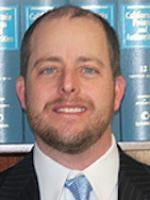Property owners owe a duty of care to people who are lawfully present on their premises to prevent injuries from existing hazards by correcting them if they know or should know about the dangers. This duty does not extend to public streets that abut the properties, however. In a recent case, the California Supreme Court examined whether or not a property owner who owned a parking lot across the street from the primary property owed a duty of care to help people to cross the street in order to prevent injuries.
Issue: Whether a property owner owes a duty of care to invitees to prevent injury when they cross over a public street from a privately owned parking lot to the owner’s premises
Grace Family Church is located in Sacramento County in an unincorporated area along a five-lane street named Marconi Street. There was an intersection that was located between 50 to 100 feet east of the church that did not have a marked crosswalk. There were not any other crosswalks across the street in the vicinity. The church used a private swim school’s parking lot as an overflow lot by agreement with the swim school.
In Nov. 2010, Alexsandr Vasilenko went to the church to attend a seminar on a rainy night. He was directed to park across the street in the overflow lot. After parking there, Vasilenko attempted to cross the street at the mid-block area instead of walking down to the intersection to cross. He was struck by an oncoming car and suffered serious injuries. Vasilenko filed a lawsuit, claiming that the church owed a duty of care to help invitees to cross the street safely because it had its overflow lot across the street. He also alleged that the attendant who directed him to park across the street did not tell him that there were volunteers posted at the intersection to help people cross the street. Finally, Vasilenko argued that the church should have known that invitees would try to cross the street where he did and should have taken steps to help them to avoid injuries.
Rule: Property owners generally do not owe a duty to help invitees to cross streets that abut their premises unless they have created conditions which cause hazards or obscure the view of the street
Grace Family Church argued that a property owner does not have a duty to protect people on public streets that abut their properties, which the plaintiff did not dispute. He instead argued that because the church had located its overflow parking lot across the street, the church owed a duty of care to help invitees to get from that lot to its main property.
In a negligence lawsuit against a property owner, the plaintiffs must be able to show that the property owner owed a duty to exercise due care, that the owner breached the duty and that the breach was the proximate cause of the resulting injury. The court examined whether or not the church owed a duty to exercise due care in helping invitees to safely cross the public street that ran between the church and its overflow lot.
Analysis
California courts have previously held that the duty owed by a property owner does not extend to public streets that run next to the property. The court found that it was foreseeable that people who parked in an overflow lot across the street might be struck by a car when they were trying to cross the street. The court then looked at whether or not Vasilenko’s decision to cross where he did and the oncoming vehicle were intervening causes of the accident. The court then found that the landowner would have no duty of care to help people cross the street unless the church had done something to obscure vision alongside its lot or introduced other dangers in some way for people who might cross the street.
Conclusion
The court ruled against the plaintiff and reversed the decision of the Court of Appeals. The defendant’s motion for summary judgment was granted and the case was dismissed. In its ruling, the court found that Grace Family Church’s duty did not extend to the public street that ran between the church and the overflow lot because it did not create any visual obstructions or other dangers. It also found that the court could not have reasonably foreseen that Vasilenko would choose to cross the street where he did and when he did.
The case demonstrates that there are limits on the duty of care that is owed by property owners to people who are lawfully present to conduct business or as invited guests.



 />i
/>i

